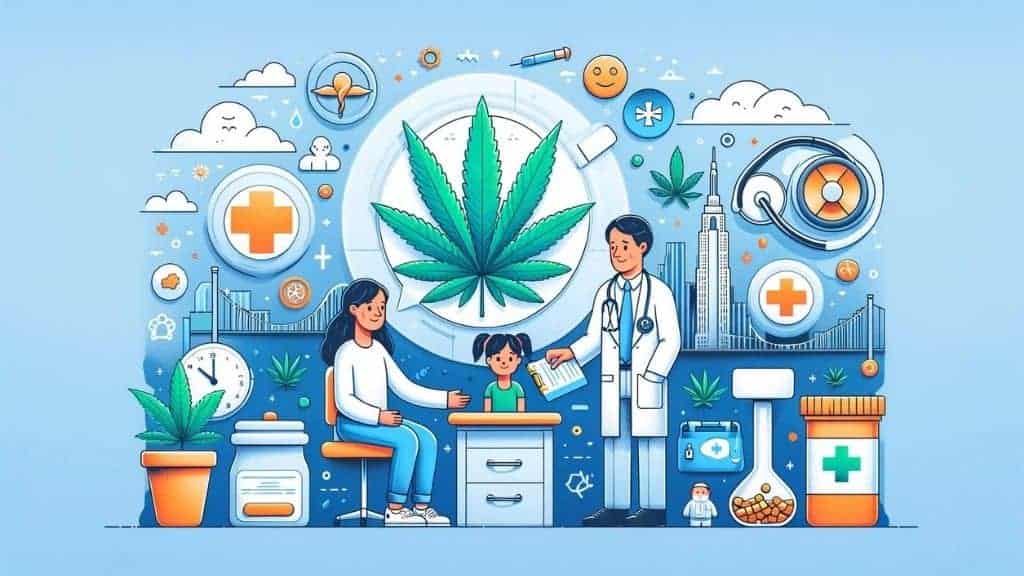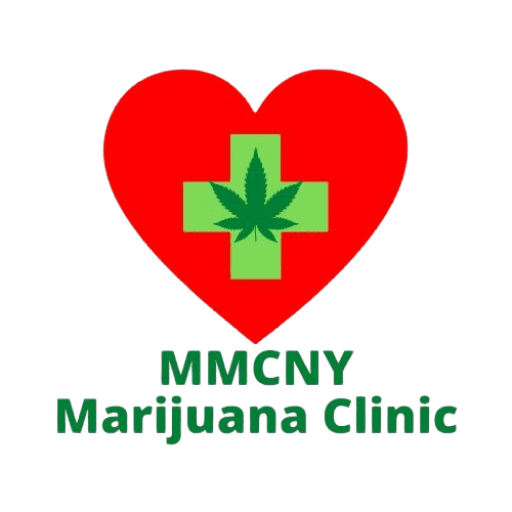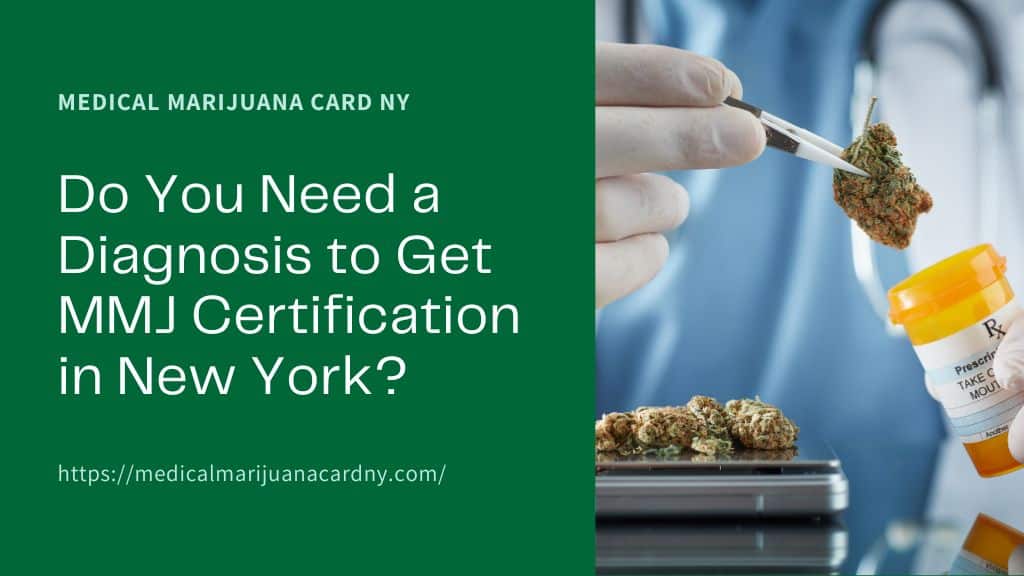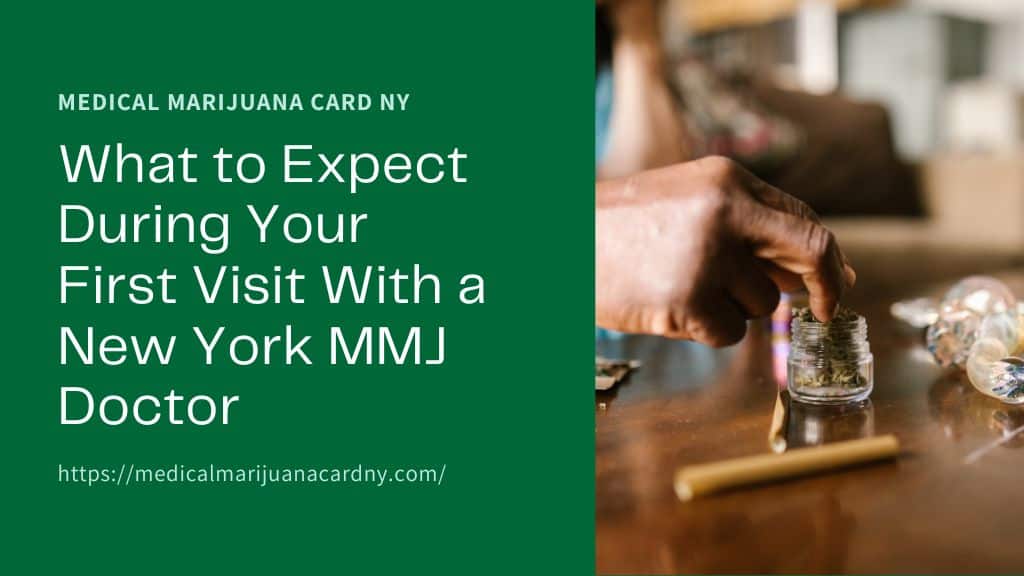The purpose of this pediatric guide to medical cannabis in New York is to serve as a comprehensive resource for parents and guardians navigating the complexities of medical marijuana for children with qualifying conditions. With New York State legalizing medical cannabis for certain pediatric uses, it’s crucial for caregivers to be well-informed.
Understanding medical cannabis use in pediatrics can empower parents to make educated decisions regarding their child’s health regimen. A 2020 report highlighted that over 3% of registered medical cannabis patients in New York were under 18, underscoring the growing acceptance and need for accurate, accessible information on pediatric medical cannabis use.
This guide aims to demystify the process, presenting key insights and legal considerations in a clear, concise manner, ensuring caregivers are equipped with the knowledge to pursue the best possible outcomes for their children’s health and well-being.
Table of Contents
Toggle- What is Medical Cannabis and How Can It Be Used in Pediatric Care?
- Why Is New York’s Approach to Medical Cannabis in Pediatric Medicine Important?
- What Are the Legal Status and Regulations of Medical Cannabis in New York?
- How Does Medical Cannabis Work in the Body?
- Which Conditions in Children Can Be Treated with Medical Cannabis in New York?
- Who Is Eligible for Medical Cannabis Certification in New York?
- How Can Parents Obtain a Medical Marijuana Certification for Their Child in New York?
- What Documents Are Required for Medical Cannabis Certification in Pediatric Patients?
- How Do Doctors Determine the Appropriate Dosage of Medical Cannabis for Children?
- What Forms of Medical Cannabis Are Available for Children in New York?
- How Can Caregivers Administer Medical Cannabis to Children Safely?
- What Are the Potential Side Effects of Medical Cannabis in Children?
- How Can Parents Monitor the Effectiveness and Safety of Medical Cannabis Treatment?
- What Are the Guidelines for Safe Storage and Administration of Medical Cannabis at Home?
- What Legal Protections Exist for Pediatric Patients Using Medical Cannabis in New York?
- School Policies on Medication Needs for Students Prescribed Medical Cannabis
- Where Can Parents Find Support and Resources on Medical Cannabis for Children in New York?
- FAQs
- Conclusion
What is Medical Cannabis and How Can It Be Used in Pediatric Care?
Medical cannabis refers to the use of the cannabis plant and its derivatives to treat symptoms of illness and other conditions. This form of treatment has gained recognition in the medical community for its potential benefits in managing various health issues, including chronic pain, epilepsy, and nausea from chemotherapy, among others.
In pediatric care, medical cannabis is primarily considered for children with conditions that have not responded well to traditional medications, offering a beacon of hope for families seeking alternative treatments.
The therapeutic use of medical cannabis in children focuses on its ability to alleviate symptoms associated with severe and chronic conditions. For instance, cannabidiol (CBD), a non-psychoactive compound found in cannabis, has been shown to significantly reduce seizure frequency in children with drug-resistant epilepsy. Unlike its psychoactive counterpart, tetrahydrocannabinol (THC), CBD does not produce the “high” commonly associated with cannabis, making it a suitable option for pediatric patients.
The application of medical cannabis in pediatric care must be approached with caution, emphasizing precise dosing and close monitoring by healthcare professionals. The goal is to balance symptom relief with the minimal occurrence of side effects, ensuring the child’s safety and well-being.
Why Is New York’s Approach to Medical Cannabis in Pediatric Medicine Important?
New York’s approach to medical cannabis in pediatric medicine is pivotal for several reasons. Firstly, it underscores the state’s commitment to exploring and integrating alternative therapies within its healthcare framework, especially for vulnerable populations such as children with chronic and debilitating conditions. This progressive stance reflects a broader understanding and acceptance of medical cannabis’s therapeutic potential when conventional treatments fall short.
Furthermore, New York’s policies serve as a model for patient-centered care, demonstrating how regulations can be structured to safeguard patients while providing access to alternative treatments. The state’s rigorous certification process for medical cannabis ensures that only qualified healthcare professionals can prescribe it, and only to patients who meet specific medical criteria. This careful regulation helps mitigate risks and underscores the importance of medical oversight in pediatric cannabis treatment.
What Are the Legal Status and Regulations of Medical Cannabis in New York?
The legal status of medical cannabis in New York is established under the Compassionate Care Act, which was signed into law in 2014. This act legalizes the use of medical cannabis for patients with qualifying conditions, subject to stringent regulations and oversight by the New York State Department of Health (DOH).
Under these regulations, patients must be certified by a healthcare provider registered with the DOH to participate in the Medical Marijuana Program. The list of qualifying conditions includes, but is not limited to, severe chronic pain, epilepsy, multiple sclerosis, Parkinson’s disease, and PTSD. For pediatric patients, the regulations are even more stringent, requiring consent from a parent or legal guardian and a thorough review by two certified healthcare providers.
The state also regulates the forms of medical cannabis that can be dispensed, including liquids, oil for vaporization, and capsules. The law prohibits smokable forms of cannabis, reflecting a focus on medicinal rather than recreational use. Dispensaries operating in New York are required to adhere to strict operational guidelines to ensure the safety, quality, and efficacy of medical cannabis products provided to patients.
How Does Medical Cannabis Work in the Body?
Medical cannabis operates within the body through a complex network known as the endocannabinoid system (ECS). The ECS plays a pivotal role in maintaining homeostasis, regulating a variety of physiological processes including pain sensation, immune response, appetite, and mood. The system is composed of cannabinoid receptors scattered throughout the body, with CB1 receptors primarily in the brain and nervous system, and CB2 receptors more abundant in the immune system.
Cannabinoids from cannabis, such as tetrahydrocannabinol (THC) and cannabidiol (CBD), interact with these receptors to produce their effects. THC binds with CB1 receptors in the brain, leading to the psychoactive effects for which cannabis is well known. On the other hand, CBD does not bind directly with CB1 receptors and is thought to work by influencing other components of the ECS and other non-cannabinoid receptors, contributing to its therapeutic benefits without eliciting a psychoactive response.
This interaction between cannabinoids and the ECS can help modulate and alleviate symptoms of various conditions. For example, THC’s effect on CB1 receptors can help reduce chronic pain and nausea, while CBD’s action may reduce seizures and inflammation without causing the “high” associated with THC.
Which Conditions in Children Can Be Treated with Medical Cannabis in New York?
In New York, medical cannabis is approved for use in children with specific, severe, and life-threatening conditions that have not responded well to traditional treatments. The state’s regulations are designed to ensure that the use of medical cannabis is both safe and effective for pediatric patients.
The following conditions are among those for which children can be prescribed medical cannabis:
- Epilepsy: Medical cannabis, particularly CBD-rich formulations, has been shown to significantly reduce the frequency of seizures in children with drug-resistant forms of epilepsy, such as Dravet syndrome and Lennox-Gastaut syndrome.
- Autism: Some parents and healthcare providers report improvements in behavior, communication, and anxiety levels in children with autism who use medical cannabis.
- Cancer: Cannabis can help alleviate the nausea and vomiting associated with chemotherapy treatments and may improve appetite and reduce pain.
- Spasticity and Movement Disorders: Conditions such as cerebral palsy that cause muscle spasticity and pain may respond well to medical cannabis, improving quality of life for affected children.
- Severe Chronic Pain: For children suffering from debilitating pain that significantly impairs quality of life, medical cannabis may offer relief when traditional pain management strategies fail.
The use of medical cannabis in pediatric patients in New York is tightly controlled, requiring certification by a healthcare provider registered with the state’s Medical Marijuana Program. This ensures that all potential treatments are considered and that medical cannabis is used as a last resort when other therapies have not been successful.
Important: While medical cannabis can offer significant benefits for certain conditions, it’s not without risks. The decision to use medical cannabis for a child should involve careful consideration and discussion between parents, the child (when possible), and the healthcare team to ensure that the potential benefits outweigh the risks.
Who Is Eligible for Medical Cannabis Certification in New York?
With the recent regulatory updates, the criteria for medical cannabis certification in New York have become more inclusive and patient-focused. Unlike the previous system, which listed specific qualifying conditions, the current approach empowers registered medical marijuana (MMJ) doctors to evaluate patients on an individual basis.
This means that any pediatric patient suffering from a condition that the MMJ doctor believes could benefit from medical cannabis may be eligible for certification. This significant shift aims to personalize treatment plans and ensure that patients who could benefit from medical cannabis are not excluded due to rigid qualifying condition lists.
How Can Parents Obtain a Medical Marijuana Certification for Their Child in New York?
For parents seeking medical marijuana certification for their child, the process begins with finding a doctor who is registered with the New York State Medical Marijuana Program. These registered doctors have undergone specific training and are authorized to certify patients for medical cannabis use.
The steps are as follows:
- Consult a Registered MMJ Doctor: Schedule an appointment with a registered MMJ doctor for your child. This consultation can often be conducted via telehealth services, providing convenience and accessibility to families across New York.
- Medical Evaluation: During the appointment, the doctor will evaluate your child’s health condition, medical history, and previous treatments to determine if medical cannabis could be beneficial.
- Certification Issuance: If the doctor concludes that your child could benefit from medical cannabis, they will issue a medical marijuana certification. This certification includes a registration ID number for your child, which serves as proof of eligibility to purchase medical cannabis products from dispensaries.
- Dispensary Registration: With the certification and registration ID number, parents or caregivers can visit any registered dispensary in New York to purchase medical cannabis products suitable for the child’s condition, as recommended by the certifying doctor.
What Documents Are Required for Medical Cannabis Certification in Pediatric Patients?
To streamline the certification process for medical cannabis in pediatric patients, parents or caregivers should prepare the following documents before consulting with a registered MMJ doctor:
- Proof of Residency: A document verifying that the child resides in New York State, such as a state ID, utility bill, or school document.
- Medical Records: Relevant medical records that outline your child’s diagnosis, treatment history, and any other pertinent medical information that supports the need for medical cannabis.
- Legal Guardian Documentation: If applicable, legal documents proving guardianship or parental rights, ensuring that the person seeking certification on behalf of the child is authorized to do so.
The process of obtaining medical cannabis certification for a child in New York requires understanding the updated regulations and preparing the necessary documentation. By doing so, parents and caregivers can ensure that their children with qualifying conditions can access potentially beneficial treatments in a legal and regulated manner.
How Do Doctors Determine the Appropriate Dosage of Medical Cannabis for Children?
Determining the appropriate dosage of medical cannabis for children involves a careful and individualized approach. Doctors take into account several factors, including the child’s age, weight, the specific condition being treated, and the child’s previous exposure to cannabis (if any). The overarching principle is to start with the lowest possible dose that might provide relief and to adjust gradually based on the child’s response to the treatment. This method, often referred to as “start low and go slow,” minimizes the risk of adverse effects while assessing the therapeutic benefits of cannabis.
Moreover, doctors rely on clinical guidelines, available research, and anecdotal evidence from their practice to make informed dosage decisions. Given the variability in how individual patients may respond to cannabis, close monitoring and regular follow-up appointments are essential to tailor the dosage to the child’s specific needs and circumstances.
What Forms of Medical Cannabis Are Available for Children in New York?
In New York, the forms of medical cannabis approved for use, especially in pediatric care, are designed to ensure safety and ease of administration. These include:
- Oil Preparations: Cannabis oil can be administered orally or added to food, making it a versatile option for children. It’s particularly useful for precise dosing.
- Capsules and Tablets: These forms provide consistent doses of cannabis, suitable for older children who can safely swallow pills.
- Oral Sprays: Offering controlled dosages and easy use, oral sprays are another child-friendly option that can deliver cannabis directly into the mouth.
- Topicals: For conditions requiring localized relief, such as certain skin conditions or localized pain, topical cannabis preparations can be applied directly to the skin.
Important: The New York State Department of Health regulates these forms to ensure they meet safety standards for pediatric use. The choice of form will depend on the child’s specific condition, their ability to tolerate the form of cannabis, and the doctor’s recommendation.
How Can Caregivers Administer Medical Cannabis to Children Safely?
Safety is paramount when administering medical cannabis to children. Caregivers should follow these guidelines to ensure safe administration:
- Follow the Doctor’s Instructions: Begin with the prescribed dose and timing. Adjustments should only be made under medical guidance.
- Use the Right Form: Choose a form of medical cannabis that suits the child’s age, preferences, and treatment needs, as recommended by a healthcare provider.
- Monitor the Child: Keep a close eye on the child’s response to the treatment, including any side effects or signs of improvement. Documentation can help in adjusting the treatment plan if necessary.
- Store Cannabis Safely: Keep medical cannabis products out of reach of children and in their original packaging to prevent accidental ingestion.
- Educate Yourself: Caregivers should be well-informed about the potential effects and side effects of medical cannabis to make informed decisions about care.
What Are the Potential Side Effects of Medical Cannabis in Children?
While medical cannabis offers therapeutic benefits for various conditions, its use in children must be approached with caution due to the potential for side effects. These can vary depending on the dosage, the form of cannabis used, and the individual characteristics of the patient, such as age and underlying health conditions. Common side effects may include:
- Altered Mental State: THC, a psychoactive component of cannabis, can cause changes in mood, perception, and cognitive function. While CBD-dominant strains are preferred for pediatric use due to their lack of psychoactive effects, any cannabis product containing THC poses a risk of altered mental states.
- Gastrointestinal Issues: Nausea, vomiting, and changes in appetite can occur, though cannabis is often used to alleviate such symptoms in chemotherapy patients.
- Fatigue and Drowsiness: Cannabis can induce drowsiness and fatigue, which may interfere with a child’s daily activities and sleep patterns.
- Mood Changes: Anxiety, agitation, or mood swings may be observed, particularly in children sensitive to the effects of cannabis.
Important: The long-term effects of cannabis use in children, including its impact on cognitive and emotional development, are not fully understood. The current body of research is growing, but conclusive long-term data is still needed.
How Can Parents Monitor the Effectiveness and Safety of Medical Cannabis Treatment?
Given the potential side effects, monitoring the effectiveness and safety of medical cannabis treatment is critical. Parents and caregivers play a key role in this process, working closely with healthcare providers to ensure optimal outcomes.
Here are strategies to effectively monitor treatment:
- Maintain Regular Follow-ups: Scheduled visits with the healthcare provider who recommended medical cannabis are crucial for assessing the child’s response to treatment and adjusting the dosage or formulation as needed.
- Keep a Symptom Diary: Documenting the child’s symptoms, dosage, and any side effects on a daily basis can provide valuable insights into the treatment’s effectiveness and tolerability.
- Observe Behavioral and Physical Changes: Parents and caregivers are often the first to notice changes in the child’s behavior, mood, or physical health. Promptly communicating these observations to the healthcare provider can help in managing side effects or adjusting treatment.
- Educate on Safe Usage: Ensuring that the child uses medical cannabis as prescribed, without deviation, is essential for safety. This includes storing cannabis products securely to prevent accidental ingestion or misuse.
- Leverage Support Networks: Engaging with support groups or networks of other families navigating medical cannabis treatment can provide additional insights, shared experiences, and emotional support.
In New York, with the legal landscape of medical cannabis continually evolving and the increasing recognition of its potential benefits in pediatric care, informed and vigilant monitoring by parents and caregivers becomes all the more critical. This collaborative approach between families and healthcare providers ensures that the therapeutic use of medical cannabis in children is both effective and safe, maximizing benefits while minimizing risks.
What Are the Guidelines for Safe Storage and Administration of Medical Cannabis at Home?
The safe storage and administration of medical cannabis are critical to prevent accidental ingestion and ensure that the medication is used correctly to treat specific medical conditions. Here are essential guidelines:
- Secure Storage: Medical cannabis should be stored in a secure, locked location out of reach and sight of children and pets. Using childproof containers and keeping the products in their original packaging with clear labeling can help prevent accidental ingestion.
- Clear Labeling: Ensure that all medical cannabis products are clearly labeled with the patient’s name, the dosage, and the administration schedule. This helps in preventing dosing errors and ensures that caregivers or other family members are aware of the medication’s intended use.
- Educate Household Members: All members of the household should be educated about the purpose of the medication, its potential effects, and the importance of keeping it secured from children who are not the intended patients.
- Follow Dosage Instructions: Caregivers must strictly follow the healthcare provider’s instructions regarding dosage and timing. Adjustments to the dosage should only be made under medical supervision.
- Proper Disposal: Unused or expired medical cannabis products should be disposed of properly to ensure they do not pose a risk to others. Many dispensaries offer take-back programs or can advise on safe disposal methods.
What Legal Protections Exist for Pediatric Patients Using Medical Cannabis in New York?
New York State has implemented legal protections for pediatric patients and their families using medical cannabis, recognizing its importance as a treatment option for certain conditions. These protections include:
- Protection from Prosecution: Patients and their designated caregivers who are registered with the New York State Medical Marijuana Program are protected from arrest, prosecution, or penalty in any form, provided they possess medical cannabis in accordance with state laws.
- Confidentiality: The medical use of cannabis is a private health matter. New York State ensures the confidentiality of patients and caregivers participating in the Medical Marijuana Program, with access to patient information strictly regulated.
- Non-Discrimination: Patients using medical cannabis are protected under state law from discriminatory actions by schools, landlords, and employers, provided the use is in accordance with a certified healthcare provider’s recommendation.
School Policies on Medication Needs for Students Prescribed Medical Cannabis
Handling medication needs for students prescribed medical cannabis requires careful coordination between families, healthcare providers, and schools. New York schools have developed policies to accommodate students who are medical cannabis patients, ensuring their educational and medical needs are met. These policies typically include:
- Administration by Designated Individuals: Schools may allow the administration of medical cannabis to students by a parent, guardian, or designated caregiver, rather than school personnel.
- Designated Administration Areas: To ensure privacy and compliance with state laws, schools may designate specific areas where medical cannabis can be administered to students.
- Compliance with State Regulations: Schools adhere to New York State regulations regarding the possession and administration of medical cannabis on school property, ensuring that students who are registered patients can continue their treatment without disruption to their education.
As families navigate the use of medical cannabis for pediatric patients, understanding these guidelines and protections ensures that children receive the care they need in a safe, legal, and supportive environment.
The evolving regulatory framework in New York underscores the state’s commitment to providing viable treatment options for children with qualifying medical conditions, within a framework that prioritizes their safety and well-being.
Where Can Parents Find Support and Resources on Medical Cannabis for Children in New York?
Navigating the world of medical cannabis for children can be daunting for parents and caregivers. However, New York offers a variety of resources and support networks to assist families:
- New York State Department of Health (NYSDOH): The NYSDOH website is a primary resource for information about the Medical Marijuana Program, including how to obtain a medical marijuana certification, legal guidelines, and lists of registered practitioners.
- Patient Advocacy Groups: Organizations such as the Epilepsy Foundation, United Patients Group, and Americans for Safe Access provide resources, support, and advocacy for patients considering medical cannabis. These groups can offer guidance, connect families with experienced healthcare providers, and help navigate legal concerns.
- Educational Resources: A number of reputable medical institutions and online platforms offer educational materials on medical cannabis, including its use in pediatric care, potential benefits, and risks. Resources such as the Pediatric Cannabis Support website and the Realm of Caring Foundation offer insights specifically tailored to the needs of children and their families.
- Support Networks: Connecting with other families who have experience with medical cannabis can provide invaluable emotional support and practical advice. Social media groups, forums, and community events are great ways to meet others in similar situations and share experiences.
FAQs
What conditions in children can medical cannabis be used for in New York?
Medical cannabis can be prescribed for various conditions in children, including but not limited to severe epilepsy, cancer, autism spectrum disorders, and chronic pain. The decision is based on the evaluating doctor’s clinical judgment since New York does not have a predefined list of qualifying conditions as of the latest updates.
Who is eligible to prescribe medical cannabis to pediatric patients in New York?
Only qualified healthcare providers who are registered with the New York State Medical Marijuana Program and have completed the required training can prescribe medical cannabis to pediatric patients.
How can I find a healthcare provider registered with the Medical Marijuana Program in New York?
The New York State Department of Health (NYSDOH) provides a list of registered practitioners on its website. Parents can also consult with their child’s current healthcare provider for referrals.
What forms of medical cannabis are available for children in New York?
Children in New York can use medical cannabis in forms such as oils, tinctures, capsules, and oral sprays. Smokable and edible forms of cannabis are not permitted under the state’s medical cannabis program.
How do I obtain medical cannabis for my child once it’s prescribed?
With a medical marijuana certification from a registered doctor, parents or guardians can purchase the prescribed medical cannabis products from a state-licensed dispensary using the patient’s registration ID number.
What are the side effects of medical cannabis in children?
Possible side effects include drowsiness, changes in appetite, gastrointestinal issues, and mood changes. The exact side effects can vary based on the type and dosage of medical cannabis used.
How can I ensure the safe administration of medical cannabis to my child?
Follow the prescribing doctor’s instructions precisely, start with the lowest possible dose, and monitor your child’s response closely. Store medical cannabis products securely, out of reach of children and pets.
Are there legal protections for pediatric patients using medical cannabis in New York?
Yes, patients and their designated caregivers registered with the New York State Medical Marijuana Program are protected under state law, which allows them to possess, obtain, and administer medical cannabis as prescribed without facing legal penalties.
How do schools in New York accommodate students who are prescribed medical cannabis?
Schools in New York are required to make accommodations for students who are registered medical cannabis patients. This may include allowing a designated caregiver to administer the medication on school premises in a non-disruptive manner.
Where can parents find support and resources on medical cannabis for children in New York?
Parents can find support and resources through the NYSDOH, patient advocacy groups, educational websites dedicated to medical cannabis, and support networks for families of pediatric medical cannabis patients.
Conclusion
In New York, the use of medical cannabis for pediatric patients symbolizes a progressive and empathetic stride in addressing the intricate health challenges faced by children unresponsive to conventional medications. Central to harnessing the benefits of this treatment is the acquisition of a medical marijuana certification, a pivotal step ensuring that pediatric patients can legally access and use medical cannabis under the guidance of qualified healthcare professionals.
This certification, alongside New York’s robust regulatory framework, affirms the state’s dedication to safety, efficacy, and accessibility in medical cannabis use for children. It embodies a holistic approach to pediatric care, blending rigorous oversight with compassionate use policies.
For families navigating the complexities of severe medical conditions, the thoughtful integration of medical cannabis into treatment options offers a beacon of hope. It underscores New York’s commitment to enhancing the quality of life for its youngest residents through innovative, regulated healthcare solutions.
Additional Resources
https://www.ncbi.nlm.nih.gov/pmc/articles/PMC5473390/
https://cps.ca/en/documents/position/medical-cannabis-for-children-evidence-and-recommendations





